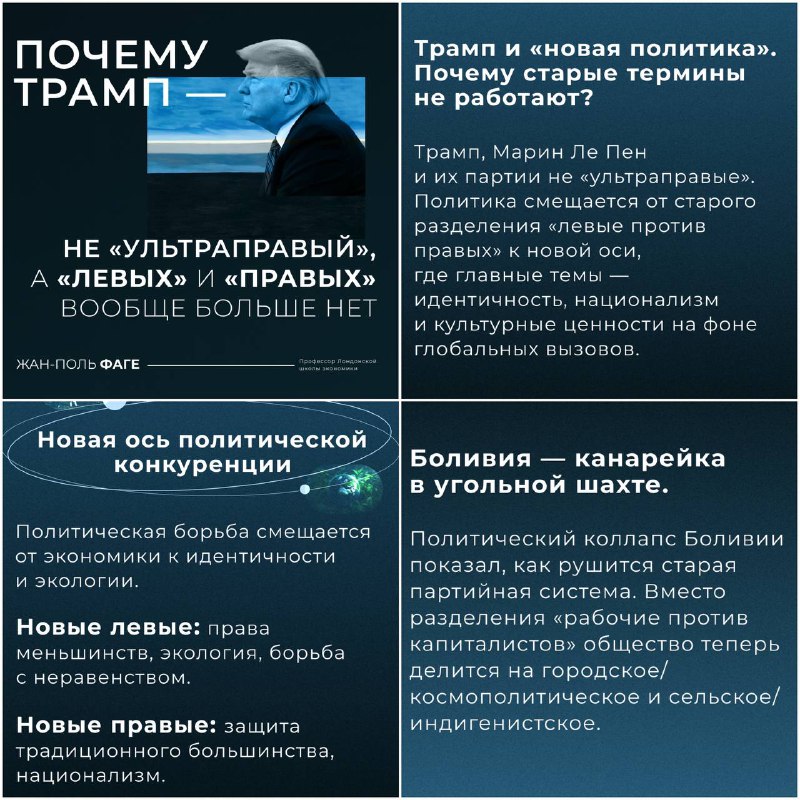Telegram Group »
Viet Nam »
Школа гражданского просвещения / Sapere Aude »
Telegram Webview »
Post 1041
Политические категории «левые» и «правые» больше не описывают реальность. На смену экономическим расколам пришли новые линии — вопросы идентичности и экологии, которые разделяют общества сильнее и глубже. Вместо старой борьбы труда и капитала, мы видим противостояние традиционалистов и космополитов, городов и периферии.
Трамп, Марин Ле Пен и другие новые лидеры не «ультраправые» в привычном смысле: они играют на новой оси, где расколы определяются не экономикой, а культурой и идентичностью. Этот сдвиг уже изменил политическую карту мира и ставит под угрозу способность обществ находить компромиссы.
📌Статья на сайте Sapere.online
Трамп, Марин Ле Пен и другие новые лидеры не «ультраправые» в привычном смысле: они играют на новой оси, где расколы определяются не экономикой, а культурой и идентичностью. Этот сдвиг уже изменил политическую карту мира и ставит под угрозу способность обществ находить компромиссы.
📌Статья на сайте Sapere.online
❤6
group-telegram.com/sapereonline/1041
Create:
Last Update:
Last Update:
Политические категории «левые» и «правые» больше не описывают реальность. На смену экономическим расколам пришли новые линии — вопросы идентичности и экологии, которые разделяют общества сильнее и глубже. Вместо старой борьбы труда и капитала, мы видим противостояние традиционалистов и космополитов, городов и периферии.
Трамп, Марин Ле Пен и другие новые лидеры не «ультраправые» в привычном смысле: они играют на новой оси, где расколы определяются не экономикой, а культурой и идентичностью. Этот сдвиг уже изменил политическую карту мира и ставит под угрозу способность обществ находить компромиссы.
📌Статья на сайте Sapere.online
Трамп, Марин Ле Пен и другие новые лидеры не «ультраправые» в привычном смысле: они играют на новой оси, где расколы определяются не экономикой, а культурой и идентичностью. Этот сдвиг уже изменил политическую карту мира и ставит под угрозу способность обществ находить компромиссы.
📌Статья на сайте Sapere.online
BY Школа гражданского просвещения / Sapere Aude


Share with your friend now:
group-telegram.com/sapereonline/1041
